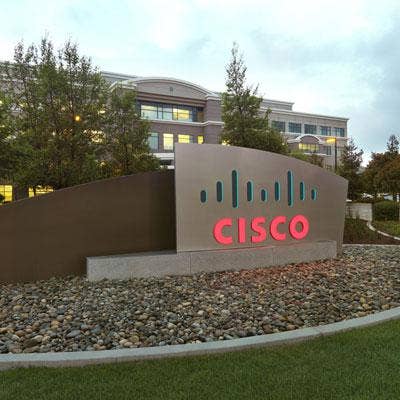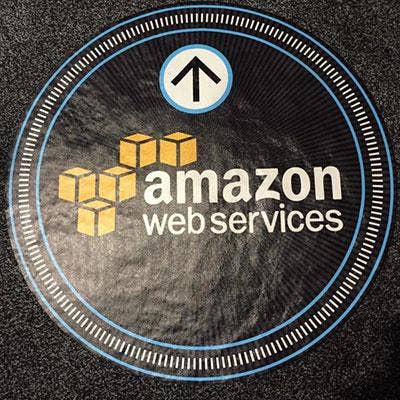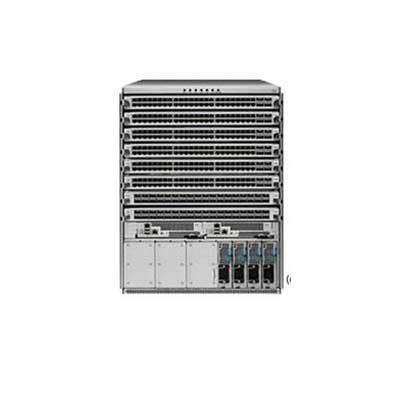10 Things To Know About Cisco's Acquisition Of Viptela

Amazon, VCE And DNA
Cisco made a big splash in the software-defined WAN market by unveiling its plan to acquire SD-WAN startup Viptela for $610 million.
The San Jose, Calif.-based startup, who CRN predicted would be acquired by Cisco, has closer ties to the networking giant than one might think – with many of its leaders having spent years at Cisco in various executive roles including founders Amir Khan and Khalid Raza. Partners also need to know about Viptela's channel strategy, Amazon partnership and market opportunity the acquisition presents to the channel.
Here are 10 things you need to know about Cisco's acquisition of Viptela, who was named multiple times over the past three years in CRN's 10 Coolest Networking Startups.

Amazon Ties
Cisco plans to both compete and complement cloud giant Amazon, while committing "to expanding the relationship around" the AWS marketplace, said Nirav Sheth, vice president of solutions, architecture and engineering for Cisco's Global Partner Organization, in a recent interview with CRN.
The vast majority of Viptela customers use its technology delivered through AWS. This could potentially help Cisco gain new customers who are leveraging cloud services. In November, the startup announced a technology partnership with Amazon Web Services that allows customers to add AWS resources to their WANs. The partnerships extended all the SD-WAN capabilities offered by the Viptela platform to AWS so resources can be managed and provide the same user experience as if they were hosted in a company's own data centers, according to a release.

Viptela Founders Hail From Cisco
Viptela emerged from stealth in 2014 led by founders Amir Khan (left) and Khalid Raza (right), who previously held top roles at Cisco. Before starting Viptela in 2012, Raza spent 17 years at the networking giant as an engineer, while Khan tenure included a pair of five-year stints at Cisco including the position of director of product management in 2007, according to LinkedIn profiles. Khan was also senior director of product management for Juniper Networks from 2007 to 2011.
Raza is CTO of Viptela, while Khan moved from his CEO position to President in January when the startup named Praveen Akkiraju (middle) as the new CEO.

Former VCE CEO Leads Viptela
Viptela CEO Praveen Akkiraju, who was hired in January to replace Khan, is the former CEO of VCE. Akkiraju ran VCE – which started as a joint venture between EMC, VMware and Cisco in 2012 – for nearly four years, helping to grow the company into a $2.1 billion business.
Prior to leading VCE, Akkiraju spent nearly two decades at Cisco in various executive roles including senior vice president and general manager of enterprise networking & cloud infrastructure.

Viptela Is A Channel-Focused Company
Within two years of emerging from stealth, Viptela launched its first-ever partner program: the vForce Global Partner Program in October 2016. The program was led by channel veteran Anthony D'Angelo – a former channel leader at HP, Westcon and RSA. vForce offers an assured margin program, a rapid onboarding process, "partner success" funding and a no direct sales strategy topped off with a 100 percent channel sales model.

Cisco IWAN and Meraki Versus Viptela SD-WAN
The networking giant has been selling its Intelligent WAN, Cisco's SD-WAN solution, for several years. IWAN is an on-premises SD-WAN solution based on its ISR branch routing platform. Cisco markets IWAN for customers who need advanced routing features, a set of modular platform with integrated WAN and LAN interface and advanced network services. Cisco Meraki – the vendor's other SD-WAN product – is a full-stack solution with routing, switching, wireless, and enterprise mobility management as a completely integrated offering.
Comparatively, Viptela's SD-WAN offering is a cloud-first solution for branch offices that is subscription based. The startup's solution targets customers who value granular WAN segmentation with encryption and sophisticated WAN topologies, according to the company. The solution enables centralized configuration and management of devices along with a real-time dashboard to monitor the health of the network, while lowering WAN costs.

16,000 Branch Offices
Viptela has deployments in over 16,000 branch offices, including some of the largest cloud-based SD-WAN customer deployments globally. Viptela touts its SD-WAN solution as making it easy for customers to design, deploy and manage the WAN. Carriers including Verizon and Singtel are using Viptela to deliver managed SD-WAN services.

Viptela On Cisco ISR Routers?
Cisco plans to combine Viptela's cloud-first management, orchestration, and overlay technologies with Cisco's ISR platform and IWAN solution. Although Cisco declined to discuss integration plans for Viptela, Prashanth Shenoy, vice president of product marketing for enterprise networks at Cisco, told CRN that integration can start immediately after the acquisition closes given that Viptela offers an overlay technology.
Cisco said it will announce the integration roadmap and go-to-market plan after the acquisition closes, which is expected in the second half of 2017.

$6 Billion Market Opportunity For Partners
Research firm IDC estimates that worldwide SD-WAN revenues will exceed $6 billion in 2020 with a CAGR of more than 90 percent over the next four years. By cutting down the SD-WAN competition while widening Cisco's customer footprint in the market, partners have the opportunity to drive new sales for on-premises, hybrid and cloud-based SD-WAN solutions with Cisco and Viptela.

Viptela To Boost DNA
One key reason why Cisco spent $610 million on Viptela is its capability of complementing Cisco's Digital Network Architecture (DNA). Cisco said Viptela's SD-WAN aligns to DNA principles of security, virtualization, automation and analytics, while helping to drive recurring revenues for partners.
Launch in March 2016, DNA is a software-driven, service-centric architecture based on automation, virtualization, analytics, managed services and open APIs that is aimed at enabling digital business. Cisco added several new solutions to DNA in February.

Cisco Also Acquired Saggezza's Analytics Team
Although it didn't make as big of a headline, just three days after Cisco announced its intention to buy Viptela, the vendor also unveiled plans to acquire the advanced analytics team and associated IP property within Saggezza, a privately-held technology services company based in Chicago, Ill. Cisco said the talent it's bringing in around analytics, cloud and secure platform development will complement Cisco DNA similar to Viptela's technology. Financial terms of the deal were not disclosed.
"This team has been responsible for developing innovative technology that powers Saggezza's internal analytics platform, which enables customers to rapidly acquire and analyze data, creating complex rules and new data visualization applications," said Rob Salvagno, vice president of corporate business development for Cisco, in a blog post.